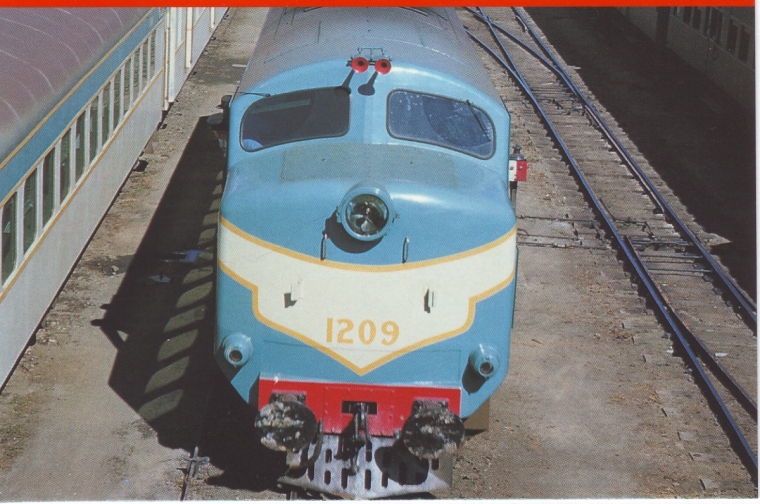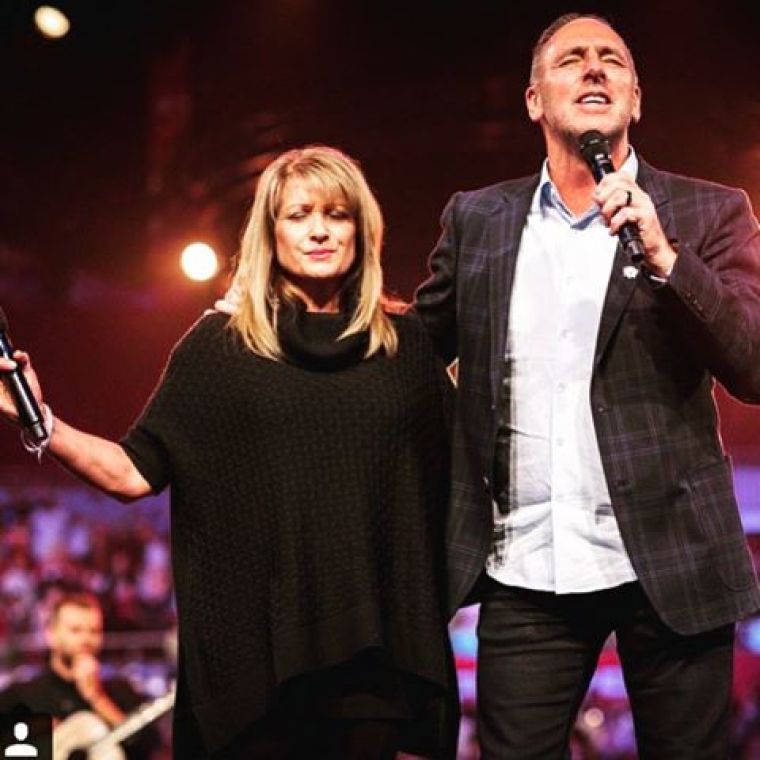

The Footplate Padre says that with the transition from steam to diesel in the late 1950s-60s, a new era for locomotive crews came into being. One of these related to the nature of keeping the train running.
With steam engines, any delay or train working issue could be put down to numerous steam functioning problems. The old style steam engine driver, in the wider community, was recognised as a figure of some esteem due to the vagaries of steam. However, the diesel era saw a number of subtle changes.
First, many more people were familiar with engines driven by a variety of oil fuels; they drove water pumps, machinery, ships, motor vehicles, and aeroplanes. The diesel electric locomotive was not such a strange mythological creature as was the panting and breathing steam locomotive.
Second, the nature of the work saw a change in the type of recruiting. General good health and an average intelligence became the only necessary qualifications for recruiting diesel locomotive staff, whereas in the days of steam, it was important that men had a good working knowledge of the mechanical operation which accompanied steam locomotion.
Third, and possibly a little surprising, that in the steam era, the locomotive driver and fireman not only needed a high level of skill, but also a good ear for steam running. They needed to understand 'in their bones' that the importance of the undefined 'extras' such as the meaning of the different sounds of the steam piston.
However when the diesel era came, the defining of each engine by the internal magic of steam working was replaced with more worldly images such as the diesel's outward design (streamline or hood) and its colour. For example, Queensland adopted a blue and white colour scheme, whereas New South Wales a russet red, Victoria a dark blue, South Australia a silver and maroon. Queensland adopted only one streamlined round-nose design, whereas New South Wales and Victoria chose a variety of streamlined diesel designs.
The Footplate Padre has often reflected on the changes brought with the coming of diesel. It's not unlike becoming a follower of Jesus Christ, as there is now a new world view. What hasn't changed is that food and clothing is still required for the family, the children's educational needs have not altered. What has changed is the way 'Christians' give over the direction of their lives to the person of Jesus, and this can be very subtle.
For example, the use of our disposable income, our choices, what we do with our time, goals and a whole new way in which providence is understood, as the Lord opens doors or closes others. And moreover following Jesus can be very exciting. There is no specific law associated with this, it's a thing of the heart, unlike the 'blue tape' on a diesel locomotive.

The blue tape
A diesel locomotive's 'blue tape' is not unlike the 'black box' from an aircraft's cockpit, although the 'blue tape' does not record voices. A highly skilled trained eye, however, can read the most exacting details of how that locomotive was travelling at any given point.
In the golden era of the inter-state and intra-state passenger express trains in the 1960s and '70s, the tight timetables left little margin for error. Drivers lived in the 'fast lane' and were expected to maintain speeds of 70 miles and hour. The 'blue tape' would even yield up information about when a driver found himself having to catch up a little lost time.
On one such occasion The Southern Aurora's 'blue tape' was removed for inspection upon arrival at Sydney Central to check for unusually 'high speed' as passengers had complained about rough riding. Sure enough, a couple of weeks later the driver received a 'letter to explain' (referred to as Bungs) as the 'blue tape' revealed he was travelling at 7mph faster than permitted around some of the sharper curves. The driver checked his note book, and discovered that the 'blue tape' was from the trailing locomotive. This was an easy mistake for an inspector to make, as crews change to the rear diesel after detaching the carriages for the return run to Eveleigh depot.

The driver replied that since they were on the leading diesel, he could not see the speedometer of the trailing diesel, and neither he nor his fireman had any recollection of the trailing locomotive passing them (since, according to the 'blue tape' was travelling 7 mph faster than they were), and nor was it at Sydney Central waiting for them upon their arrival. But, as his letter continued, he'd been a driver for 30 years and knew the NSWGR was always right, so he applied for the trailing diesel's salvage rights, as obviously it had careered into Sydney Harbour. He was fined £10 for insolence (escaping the £30 fine for speeding).
Yes, there is lots of railway humour. Nonetheless the idea of an objective measure such as the 'blue tape' is based on a serious principle. How many times have you witnessed 'little injustices' such as a team selector preferring the child 'of a friend' over an obviously more talented kid? What about the little girl whose parent/s can only afford a plain party dress, and she is teased?
There are thousands upon thousands of real life 'little' injustices every day. The Footplate Padre says the Scriptures speaks of record keeping, not unlike that of the 'blue tape'. Everyone will have to give an account. Nothing will be missed. It will expose every injustice, every wrong done, every evil endeavour.
But the good news is the promise from the Lord. Once these wrongs have been read out, those who had sought out repentance will be pronounced as forgiven, which will override and expunge that record keeping. That is why Jesus died for our sins! Now that is good news!
This transformation of the heart still struggles with guilt and sin, but now, repentance and forgiveness provides a whole new experience of grace and joy in the Lord.

Dr Mark Tronson is a Baptist minister (retired) who served as the Australian cricket team chaplain for 17 years (2000 ret) and established Life After Cricket in 2001. He was recognised by the Olympic Ministry Medal in 2009 presented by Carl Lewis Olympian of the Century. He mentors young writers and has written 24 books, and enjoys writing. He is married to Delma, with four adult children and grand-children.
Mark Tronson's archive of articles can be viewed at http://www.pressserviceinternational.org/mark-tronson.html